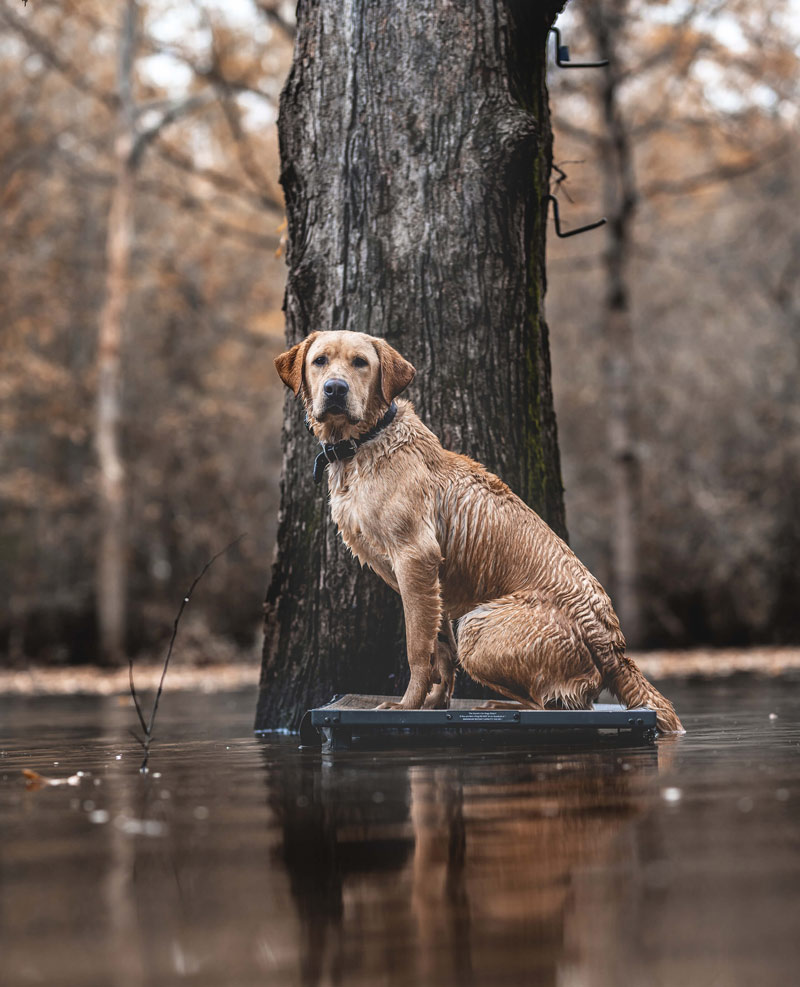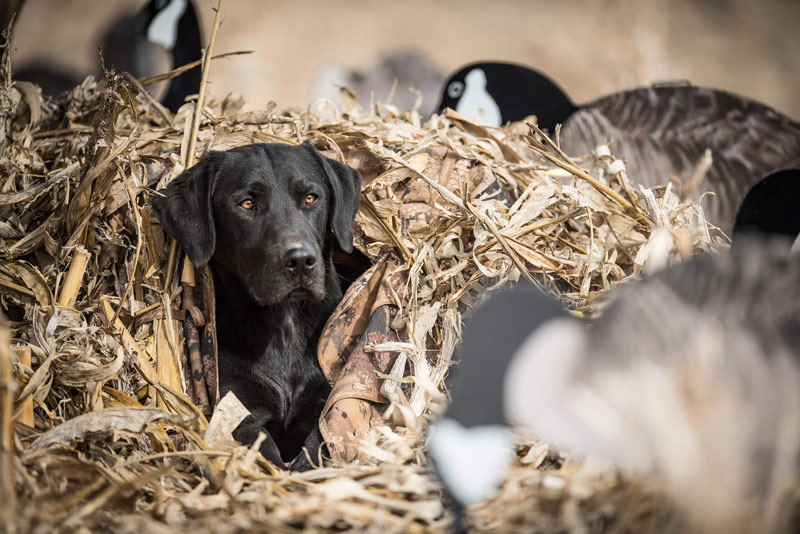SPONSORED CONTENT: EUKANUBA
You’ve waited to hit your honey-hole spot for the perfect day. You know that you’re hitting the migration just right, and if you’ve played your cards correctly, you’ll be limited out by early morning.
Eyes to the sky, your calls have a large flock of mallards cupping its wings into your spread—when suddenly, your Lab breaks from his dog blind and that group of mallards is now small beating specs as it flies away. How do you handle training issues while hunting that may make or break your hunt?

Robert Milner, the owner of Duckhill Kennels, in Tennessee, and a Eukanuba Pro Trainer says, "The excitement in a blind causes dogs to produce adrenalin, endorphins and other neurochemicals. Those hormones put them in a state of excitement. Fortunately, hormones dissipate faster than they are created. It takes about three minutes for these neurochemicals to reduce and for dogs to relax.1 When they are calm, their behavior improves, and that's when they should be rewarded with a retrieve.
"To get an over-excited dog back on track, I make him wait for three minutes before sending him on a retrieve. If he continues to be unruly, then I'll send in an obedient dog and wait until the whining dog conducts himself properly. I'll repeat that method as often as necessary until the excited dog is calm. It might take five or more repetitions for young dogs and maybe only one or two corrections for experienced dogs. Repeat as many times as necessary.

"Long retrieves are great for dogs that are excited. The same rush of adrenaline that wound up the dog now motivates him to make a long retrieve. I’ll send such a pup on a long retrieve. Then, after he’s burned off some of those hormones on the retrieve and is calm, I’ll bring him back into the blind. At that point I’ll make him wait for three minutes before sending him to retrieve. Rewarding calmness is the foundation of good blind manners, and by pausing before sending a dog on a retrieve you'll get your dog back on track very quickly."
Eukanuba Pro Trainer Josh Miller of River Stone Kennels sees a lot of dogs exhibit poor manners when they trade the training area for an actual hunt. "Dogs know your backyard very well; they are familiar with ponds used for training; so they're relaxed in the familiar turf. If you take dogs from those familiar training areas to a real-time hunting situation that includes a blind or boat, they're suddenly exposed to a new set of conditions. They associate the blind and boat with feathers, and they get excited. If they're out of practice with the dog ramp, they might get unnerved. The dramatic change from training to hunting situations can be solved by including boats, blinds, and ramps in your pre-season training routine.
"That said, dogs stopping short on a retrieve is one of the biggest issues I see during the hunting season. If you've been throwing a bumper at 35 yards every day for six months, the dog is conditioned to that range. If your dog has to make an 80-yard retrieve but stops when he reaches the 35-yard mark, call him back. Then have your buddy go to the 80-yard mark to serve as a visual. Release the dog to fetch, and when he starts to hang up at 35 yards, have your buddy call for him. The dog gains confidence during the swim and learns to refocus his attention and not stop short.

"During the pre-season, 100% of your attention is on training. You're not calling, setting decoys, or anything else. During hunting season, a handler's attention is split between calling, marking, and many other things besides the dog. If your dog is not following commands, then have your buddies do the calling and marking while you focus on calming down your dog. Work on blind manners, attention, releases, and marks. After a few outings, the dog should relax and behave, and that's when you can pull out your call and have some fun."
1 Handlin L., Hydbring-Sandberg E., Nilsson A., Ejdebäck M., Jansson A., Uvnäs-Moberg K. (2011). Short-term interaction between dogs and their owners – effects on oxytocin, cortisol, insulin and heart rate – an exploratory study. Anthrozoos 24, 301–316 10.2752/175303711X13045914865385
Photos courtesy of Eukanuba Sporting Dog.




